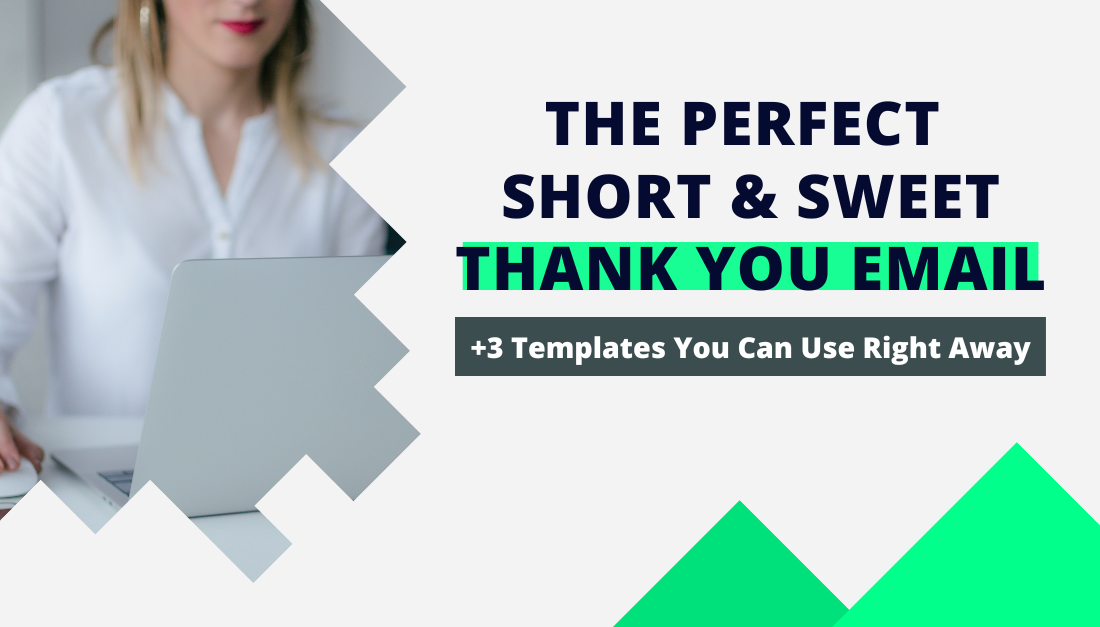
The Perfect Short and Sweet Thank You Email to Send After an Interview
According to a recent study by LinkedIn, sending a thank you note after your interview can increase your chances of landing a job.
But wait, doesn’t everyone write thank you notes after interviews nowadays?
You may be surprised to find out that only 25% of applicants actually send thank you notes after an interview. Even more interestingly, about 80% of hiring managers said they find thank you notes helpful in choosing a candidate, according to a survey by Robert Half International.
I also see dozens of anecdotal examples on LinkedIn about the effectiveness of thank you emails. For example:
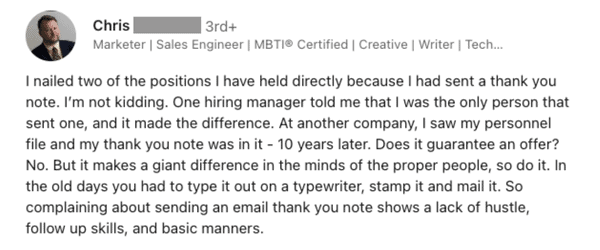
So yes, you should definitely write a thank you note after your interview, but what should you include?
As readers of this blog will know, one of my biggest pet peeves is when I come across articles like, “Here are 99 Things You Must Do to Land a Job.”
This is what’s known as a “spray and pray” approach, and ironically it usually ends up wasting all your energy doing mediocre work and getting mediocre results.
In truth, there are only 5 things you need to get right in your job search:
- Create a great resume
- Craft an intriguing cover letter
- Optimize your LinkedIn profile
- Ace your interviews
- And write a thoughtful thank you letter
I’ve created courses on the first four topics, which you can take for free here.
So in today’s post, we’ll tackle the last piece of the puzzle.
I’ll share:
- The 2 most important traits of a great thank you email
- 3 thank you email samples you can copy and use
- And when you should send your thank you email after your interview
Alright let’s jump right in!

How to Write a Thank You Email After An Interview
The two key traits your thank you email should always have are:
- Brevity: It should be short and sweet
- Personal: It should work ONLY for that specific interview
Keep your thank you email brief
The brevity aspect is pretty self explanatory. People are busy (especially hiring managers), so we’ll want to show that we honor their time. The best way to do this is by keeping your thank you letter to no more than 2 sentences.
Make your thank you email personal
Making your thank you note personal is actually far more important than you might think.
According to the CMO of Zip Recruiter, Allan Jones, a generic thank you note can actually sometimes hurt your chances rather than help them.
Allan explains:
“There is nothing worse than having an amazing conversation with a candidate only to receive the thank you note equivalent of a limp handshake.”
A thank you letter is the equivalent of a final impression.
As we’ve talked about before, creating a great first impression during your interview is very important because it tends to make the rest of the interview easier.
But, on the other end of the interview is the final impression. The final impression is what lingers in an interviewers mind.
I can tell you from first-hand experience as a hiring manager myself, I usually don’t remember the details of an interview, even just 10 minutes after the interview has ended.
But what I always remember is my final impression.
The thank you email is important because it’s an extension of that final impression.
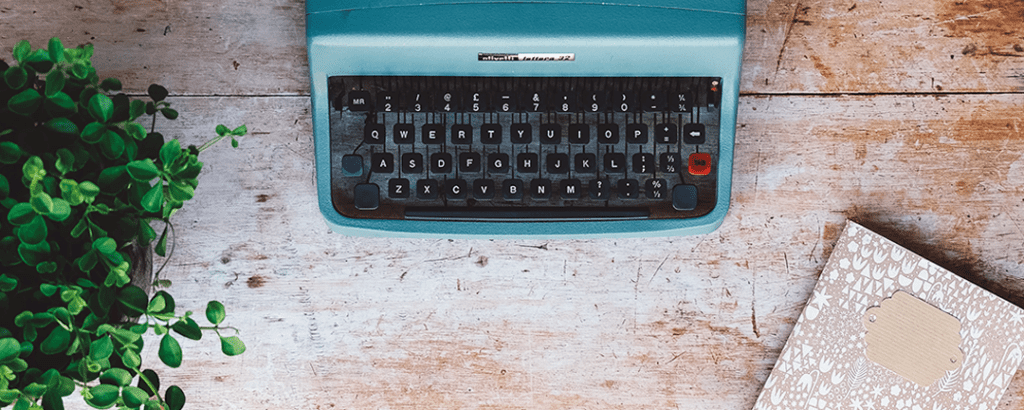
3 Great Thank You Email Samples for After your Interview
Now that we’ve outlined the two traits of a great thank you letter, let’s dive into three ways that you can create your own.
Below I’ll share three thank you email samples, but I want to remind you that these should definitely be customized to your particular job interview.
The thing that you shouldn’t customize though is the length.
Remember, always keep your thank you note to a maximum of 2 sentences.
Alright let’s look at our three thank you email samples:
#1 ) Thank you email for the great discussion
One of the easiest ways to customize your thank you email after your interview is by acknowledging a particularly pleasant part of your discussion.
If you’ve gone through our free interview course, you’ll remember that your job interview should always be a discussion, not an interrogation.
This means that your interviewer should have spoken just as much as you did, if not more.
Your thank you note can give you the perfect opportunity to acknowledge the thoughts they shared with you.
Here’s what this thank you email might look like:
Dear Sarah,
I just wanted to drop you a note to say thank you for taking the time to speak with me today. I really enjoyed hearing how you’re thinking about lead qualification at [company name] and I think there’s a lot of potential there.
Hope we can continue the discussion soon!
[Your Name]
#2) Thank you email for sharing about the team
This next type of thank you note is great to share with a manager who is actively trying to build up a team.
Building a great team at a company takes a ton of work, so acknowledging that work is a good way to pay a compliment on a topic that may be close to their heart.
Dear Sarah,
I just wanted to drop you a note to say thank you for taking the time to speak with me today. It sounds like you’re building an amazing team at [company name], which I know is no easy task!
Hope I can meet some of the rockstar team soon!
[Your Name]
#3) Thank you email for sharing interview tips
This thank you note works best with either the recruiter or with a team member.
As we covered in the interview course, you should always be asking for advice during your interview process.
If you’re speaking to the recruiter, you’ll want to ask them about what you should talk about during the rest of your interviews.
You might be thinking, “Wait, they would just tell me that?”
Yes, they absolutely would! Remember, a recruiter’s success is measured by whether a position is filled. If you get the job, that means they’ve succeeded.
Likewise, a person on the team you’re interviewing for is also motivated to get you hired because it means they will have a new teammate to help them.
If you want more details about how to solicit this help, you can watch our free interview course that explains the exact technique with several videos.
Once you’ve used the technique, here is what your thank you email to the recruiter or the team member should look like:
Dear Sarah,
I just wanted to drop you a note to say thank you for taking the time to speak with me today. I really appreciate the advice you shared about the rest of the interviews and I’m excited to put it to good use!
Hope we can chat again soon!
[Your Name]
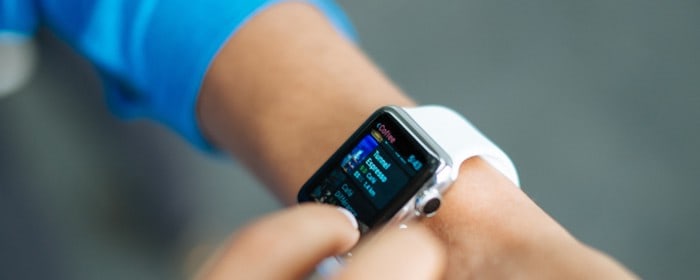
When Should you Send a Thank You Email After an Interview
Now that you know how to write a short and sweet thank you letter after your interview, the next natural question is, “when should I send it?”
According to interview experts, the best time to send a thank you letter is between 2 and 24 hours after your interview.
Not Too Soon or Too Late
The reason you don’t want to send your email sooner than 2 hours is that it can come off as too automatic and seem less thoughtful.
Alison Green, a career expert and author of How to Get a Job says:
“Don’t write your email ahead of time and then press send right after you walk out of the interview. This drains much of the significance of the gesture and might come across as, ‘I’m just checking my thank you letter off my list.’”
Creating a two hour buffer gives you time to put some thought into the personalization of the thank you email and make it more thoughtful.
On the flip side, the reason that you don’t want to wait longer than 24 hours is because it may seem like you forgot about the note entirely.
Consider the Time of Day
One final tip about timing your thank you letter is to consider what time of day you send it.
Sending your thank you email in the middle of the workday means it might end up getting lost in the busy inbox with all the spam emails.
This is why it’s recommended to send your thank you note between 4–7pm local time. This ensures the thank you note comes in as the day is winding down, or it may get read first thing the next morning.
Next Steps
So those are the most important steps to consider when writing a thank you email after your interview.
Remember that the thank you email is your final impression, so it’s good to put some thought into it.
That being said, don’t overthink it! Keep the note short and simple.
A thank you letter isn’t going to make or break your chances of landing a job, but it can give you that last little boost to beat out other candidates.
If you’re curious about any of the courses or other how-to guides I mentioned above, head over to our sign up page and you can watch all of them for free.
And if you’d like some one-on-one help with your resume or interview prep, you can also join our exclusive discord group by becoming a supporter here.
Get 1-on-1 Help
Need to land your job ASAP? Fast forward your job search with some 1-on-1 help! 👇
More from the blog:
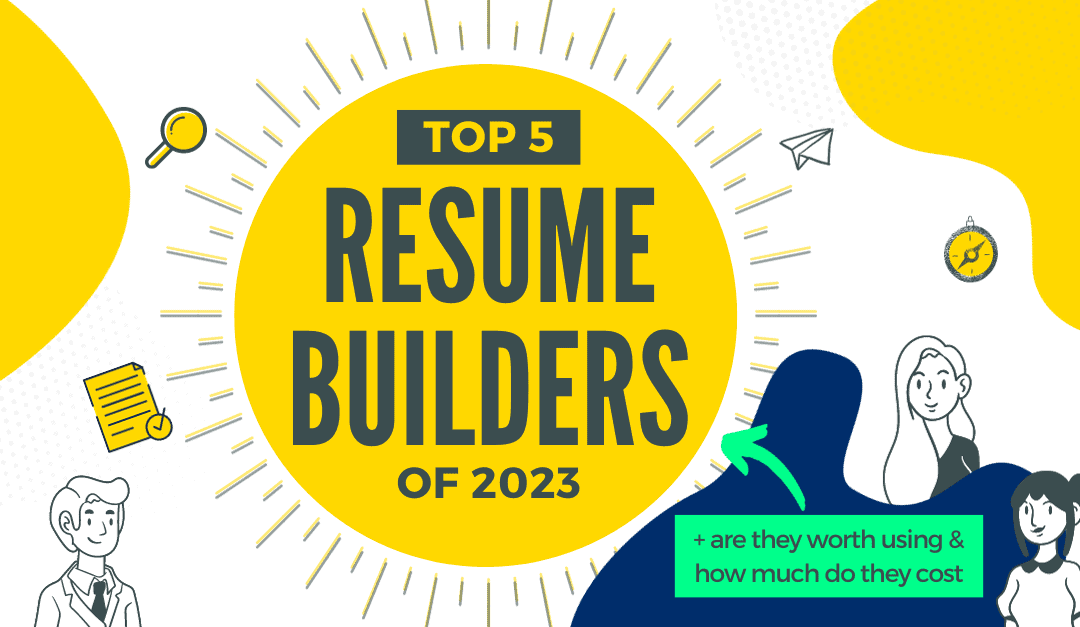
Best Resume Builders of 2023 (Pros & Cons + Prices)
Modern resume builders use AI, ATS-friendly templates, and active recommendations to help you build your perfect resume faster than ever before. In this post we’ve rounded up the 5 best resume builders of 2023.
How to Beat the ATS in 25 Minutes | The Ultimate Guide
In this guide I’ll show you how to beat the ats (applicant tracking system), plus I’ll give you 2 ATS-friendly resume templates and a free tool to test if your resume is ATS-friendly.
Like this? Try our free courses!
Tired of sending your job applications into a black hole and never hearing back? Get hired faster with our guided courses all for FREE!
Bogdan Zlatkov is the Founder of GHYC and author of "The Ultimate Guide to Job Hunting", ranked #1 on Google. He has been featured in the Wall Street Journal, Fast Company, HR Dive, and more. At GHYC, Bogdan creates job search courses & tools by working with award-winning career coaches, best-selling authors, and Forbes-Council members. Prior to GHYC, Bogdan led the content programs at LinkedIn Learning.